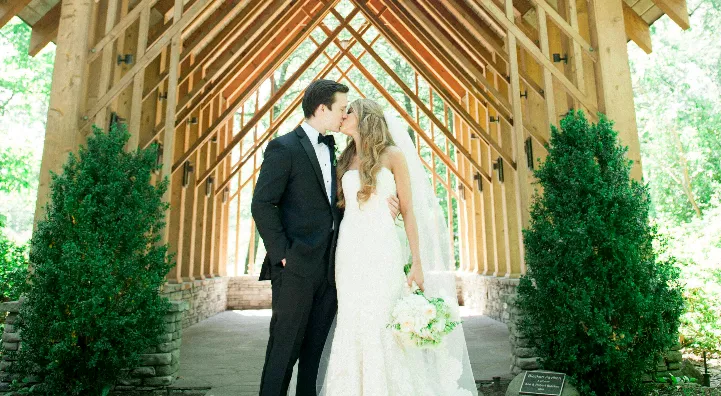Why he married her?
I never saw Lila Lane. I first heard of her when I came to Lanesville to teach school. She had passed away the spring before, leaving a disconsolate husband and four babies. The sad event had been the occasion of much discussion, and expressions of sympathy in the community. Henry Dunne, the bereft one, was a cashier in the Lanesville bank. He was plodding along; had maintained his house and slept there, while Lila’s mother cared for the children in her home.
Beautiful Lila Lane! I do not recall ever hearing her spoken of as Lila Dunne although she had been married for over five years when she died.
Lila Lane—a lovely name—it reminded one of Annabel Lee. But had I dreamed of the shadow that name was to cast over at least six years of my life, I should never have thought it beautiful.
My second school year in Lanesville was well under way when Henry Dunne began paying attention to me. I had never been a popular girl with men; was always a bookworm and, at twenty-four, had come to consider myself a settled school ma’am with slight hope of winning a husband. I was flattered by his attentions, and the fact that they were not over-ardent was lost on me because of my inexperience.
He proposed in March, and we planned to marry the last of May, when school closed.
I admit that real love did not come, but I had high hopes of what I would mean to his lonely heart and his motherless boys.
They were dear children. I love them still: Junior six, Wayne and Lane, twins, four and Jack Dimples, two, were when I came into their lives. To them I gave ungrudgingly six years of my precious twenties—and giving begets love.
Lila’s lilacs were blooming the second time since her going when Henry took me to his home. Not my home, but his—and Lila’s! The house was complete; only my personal effects were taken there with me. Even my piano was left at mother’s home in Arco, ten miles from Lanesville. Lila’s piano was there and, of course, her sons would use it.
I was not long in realizing my status. I was married, but could never hope to mean much to my husband. Henry the plodder, quiet and utterly respectable, was capable of a great love—but I was not its star! It had already been bestowed, and could not be duplicated. The children were brought home immediately, and I came to know that the father had chosen an educated, fairly well-cultured woman as a homemaker for his sons, but not as a mate for himself. He lived for and through his boys. They were Lila’s gift; parts of her very self left for him to rear and love.
As I look back now, my bewilderment was pitiful. Such loneliness—marriage such a disappointment! I felt that I must win a place in his life—I must know companionship. The key, it seemed to me, was the boys. I would devote myself to them and surely, through them, I could reach his soul. He was kind, considerate and a gentleman; but above all he was a father to Lila’s sons. He would never consider our having a child—Lila had died when jack was three days old. And he was right. A cashier’s salary in a small bank does not run to large families.
I could confide in no one. Mother and Dad would never know from me. Sometimes I felt that Henry’s mother understood my difficult position. We never discussed the matter, but her quiet sympathy drew me very near to Mother Dunne. She knew that no woman could take Lila’s place in Henry’s affections. Five years passed—busy years. Not positively unhappy, but not glorious as the first years of marriage should be. There was the portrait of Lila in the living room. Almost life-size, radiant, and glowing with youth.
Her parents had had it done, and it was a beautiful likeness to be kept before her sons. I wished it had been hung somewhere else. I never thought of asking Henry to remove it—it was there before I was. I came to hate the name and face of the woman who had left such an indelible mark on a man’s life, who had presented her gifts and taken her flight, leaving the cares of a family but none of its possessive joy, to her successor.
At twenty-eight, I awoke to the fact that I was not keeping up with the times, I had neglected study and outside interests, becoming absorbed in household routine. The boys were growing up a bit, and were a little less care to me. Junior’s broken arm and the twins’ tonsil operations had limited any expenditure for dress. I had really forgotten the lure of clothes for a time. Meeting a friend of my own age, I envied her bobbed hair, short skirts and neat ankles. I became painfully aware that I needed the assurance that good appearance brings to a woman.
All I can say is that I awoke. I did not even ask Henry’s opinion, as to bobbing my hair; I went to the barber shop and had it done. I shortened my dresses and bought new slippers and hosiery on Henry’s charge account. It was a belated blooming; but at twenty-eight I looked younger than I had at nineteen. Good teeth and black hair that curled of itself...
Beautiful Lila Lane! I do not recall ever hearing her spoken of as Lila Dunne although she had been married for over five years when she died.
Lila Lane—a lovely name—it reminded one of Annabel Lee. But had I dreamed of the shadow that name was to cast over at least six years of my life, I should never have thought it beautiful.
My second school year in Lanesville was well under way when Henry Dunne began paying attention to me. I had never been a popular girl with men; was always a bookworm and, at twenty-four, had come to consider myself a settled school ma’am with slight hope of winning a husband. I was flattered by his attentions, and the fact that they were not over-ardent was lost on me because of my inexperience.
He proposed in March, and we planned to marry the last of May, when school closed.
I admit that real love did not come, but I had high hopes of what I would mean to his lonely heart and his motherless boys.
They were dear children. I love them still: Junior six, Wayne and Lane, twins, four and Jack Dimples, two, were when I came into their lives. To them I gave ungrudgingly six years of my precious twenties—and giving begets love.
Lila’s lilacs were blooming the second time since her going when Henry took me to his home. Not my home, but his—and Lila’s! The house was complete; only my personal effects were taken there with me. Even my piano was left at mother’s home in Arco, ten miles from Lanesville. Lila’s piano was there and, of course, her sons would use it.
I was not long in realizing my status. I was married, but could never hope to mean much to my husband. Henry the plodder, quiet and utterly respectable, was capable of a great love—but I was not its star! It had already been bestowed, and could not be duplicated. The children were brought home immediately, and I came to know that the father had chosen an educated, fairly well-cultured woman as a homemaker for his sons, but not as a mate for himself. He lived for and through his boys. They were Lila’s gift; parts of her very self left for him to rear and love.
As I look back now, my bewilderment was pitiful. Such loneliness—marriage such a disappointment! I felt that I must win a place in his life—I must know companionship. The key, it seemed to me, was the boys. I would devote myself to them and surely, through them, I could reach his soul. He was kind, considerate and a gentleman; but above all he was a father to Lila’s sons. He would never consider our having a child—Lila had died when jack was three days old. And he was right. A cashier’s salary in a small bank does not run to large families.
I could confide in no one. Mother and Dad would never know from me. Sometimes I felt that Henry’s mother understood my difficult position. We never discussed the matter, but her quiet sympathy drew me very near to Mother Dunne. She knew that no woman could take Lila’s place in Henry’s affections. Five years passed—busy years. Not positively unhappy, but not glorious as the first years of marriage should be. There was the portrait of Lila in the living room. Almost life-size, radiant, and glowing with youth.
Her parents had had it done, and it was a beautiful likeness to be kept before her sons. I wished it had been hung somewhere else. I never thought of asking Henry to remove it—it was there before I was. I came to hate the name and face of the woman who had left such an indelible mark on a man’s life, who had presented her gifts and taken her flight, leaving the cares of a family but none of its possessive joy, to her successor.
At twenty-eight, I awoke to the fact that I was not keeping up with the times, I had neglected study and outside interests, becoming absorbed in household routine. The boys were growing up a bit, and were a little less care to me. Junior’s broken arm and the twins’ tonsil operations had limited any expenditure for dress. I had really forgotten the lure of clothes for a time. Meeting a friend of my own age, I envied her bobbed hair, short skirts and neat ankles. I became painfully aware that I needed the assurance that good appearance brings to a woman.
All I can say is that I awoke. I did not even ask Henry’s opinion, as to bobbing my hair; I went to the barber shop and had it done. I shortened my dresses and bought new slippers and hosiery on Henry’s charge account. It was a belated blooming; but at twenty-eight I looked younger than I had at nineteen. Good teeth and black hair that curled of itself...




